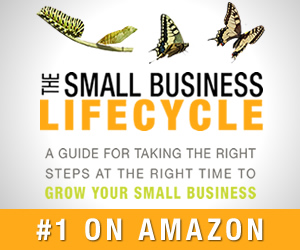 Imagine you’re at a job interview and you’re asked for your Facebook password. What do you do? How about if you’re working at a company where they are investigating “misconduct” and ask for your Facebook password? Do you turn it over? Can you be fired for refusing?
Imagine you’re at a job interview and you’re asked for your Facebook password. What do you do? How about if you’re working at a company where they are investigating “misconduct” and ask for your Facebook password? Do you turn it over? Can you be fired for refusing?
These are scenarios playing out all around the country as HR professionals and managers try to wrestle with how social media affects the workplace.
Lawmakers believe that by giving companies access to Facebook, the companies will get to see what’s really going on. They will learn who’s up to no good and who will steal their trade secrets. HR professionals think that gaining access to your Facebook account will let them hire better quality candidates.
That sounds good, right? I mean, who supports trade secret theft? No drug company would want their research taken by a competitor. No author would want their novel plagiarized. No company wants to hire a terrible employee. And as we know, in a digital world, these things happen. Passing such a law is only the safe thing to do. Right?
Feeling Like We’re in Control
This is the same reasoning coming out of the Boston Marathon tragedy with calls for more surveillance cameras. Why do we need more cameras and more public surveillance? So we can find the people who are up to no good, of course!
The more cameras we have, the more we can stop people from doing things. Just like the more passwords we have, the better we can screen candidates or track down corporate leaks.
But is that how things actually work?
Sadly, no. More information does not always lead to better decision-making.
It’s the same thinking in the HR department. More information doesn’t always lead to better decision-making. If this were the case, every CEO, president, or leader should be making decisions exponentially better than leaders did fifty, a hundred, or a thousand years ago. But a quick study of history shows that’s certainly not the case!
More Data = Better Decisions?
Asking for a Facebook password has very little to do with actually screening employees more effectively or finding the ne’er-do-wells. It has everything to do with feeling like we’re in control. Let’s go back to the Boston Marathon bombing again. If the FBI knew about the individuals who committed the atrocities but didn’t believe they were a threat, how is your HR department going to sift through Facebook to learn who is a threat?
On top of that, the FBI had letters from Saudi Arabia and a warning from Russia. Yet they couldn’t piece the puzzle together. They didn’t even know who the bombing suspects were without the public’s help, even though they had a file on them and had talked to at least the older brother.
The FBI didn’t lack information; they lacked the knowledge of what to do with it!
The reason the government wants more cameras isn’t to give them more information, it’s to look like they’re “doing something.”
The Crime of Doing Something
Turning back to Facebook passwords we see that these aren’t evil corporate overlords looking to abuse their employees. And these aren’t dastardly HR professionals seeking to find out who you dated in high school. These are people who want to do something to stop the problem of bad hires or employee theft. And that’s the problem. Acting because of pressure to act.
I firmly believe that more bad decisions are made under the guise of “doing something” than possibly any other activity. No one wants to be accused of standing around as disaster strikes. So we feel the pressure to “take action.” CEOs develop expensive plans that don’t meet the company’s challenges. They tackle side issues of work-from-home instead of what’s really going on-a lack of creativity and competitiveness. Training departments put together training programs without bothering to see if they make a difference, because hey, at least we’re doing something!
Rarely is the solution to do more random stuff. In many ways that’s what Jim Collins found as he studied the fall of once-great companies. All too often we confuse action with success. But they are two very different things.
So as you face challenges, whether in your life or at work, are you going to focus on making the right decision? Or simply focus on doing something?
Photo Credit: Eric McGregor



Speak Your Mind